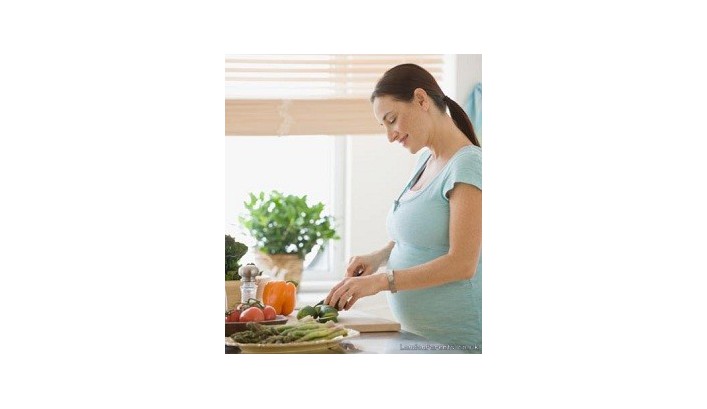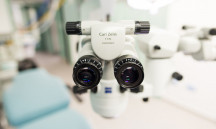Article Categories
News
-
20 July
-
04 November
-
10 July
-
12 June
-
05 June
-
24 September
-
19 September
-
10 May
-
26 April
Website Categories
Healthy eating for conception and pregnancy

How body weight affects fertility
Being a healthy body weight is important before pregnancy. If you're very underweight, it can be more difficult to conceive. Being obese may also cause problems with conceiving especially if you suffer from polycystic ovary syndrome. Women who are obese while pregnant also increase the risk of complications during pregnancy, delivery and in the few days after birth.
The ideal weight range is usually calculated using the body mass index (BMI). A BMI between 18.5 to 25 is a healthy weight for most people and associated with relatively low risks. For people with a BMI over 30, even a small weight loss can greatly increase your ability to conceive and have a healthy pregnancy. Take steps either to lose or gain weight in a sensible way before you become pregnant. Crash dieting is not good for your health, and limiting your range of foods may deplete your nutrient stores. If you're concerned about your weight, you may find it useful to speak to your doctor or practice nurse for further advice.
Your partner's weight
Eating a healthy diet and being the right body weight is important for men who are hoping to become dads, too. There have been many studies looking at specific nutrients such as zinc and selenium and male sperm quality. However, the key messages for men are:
- Aim to be the right weight for your height by eating sensibly and exercising on a regular basis.
- Follow the principles of healthy eating. Eating a variety of foods will help ensure you have all the nutrients you need such as zinc and selenium.
- Stick firmly within the alcohol limits. Do not exceed three to four units per day on a regular basis, preferably with some alcohol-free days each week.
What is a balanced diet?
With a few exceptions, you can continue to eat a normal, healthy diet before and during pregnancy. This includes regular meals and snacks, and a sensible healthy eating regime containing:
- Plenty of starchy carbohydrates - bread, rice, pasta, breakfast cereals, chapattis, couscous and potatoes.
- Plenty of fruit and vegetables - at least five portions a day.
- Low or reduced fat dairy products such as milk, yoghurt, fromage frais and pasteurised cheeses.
- Lean sources of protein, such as meat, poultry, fish, eggs (well-cooked), beans and pulses.
- Not too many fat-rich and sugary foods.
- Six to eight medium glasses of fluid each day.
- Very little or no alcohol.
Generally, pregnancy can progress well with the need for only very small increases in protein, carbohydrate, fat, vitamins and minerals. The digestive system in pregnant women changes and becomes more efficient at absorbing certain nutrients. In fact, with only a few exceptions, most of the additional nutrient needs of pregnancy can be met by eating a well-balanced and varied diet. So the old adage 'eating for two' doesn't mean you should eat twice as much food.
Weight gain in pregnancy
Optimum weight gain in pregnancy depends on your pre-pregnancy weight. The baby and amniotic fluid are only a small part of the weight gain, the rest is an increase in the mother's fat stores to provide an energy reserve for later breastfeeding. There are no specific recommendations for pregnancy weight gain in the UK. However in the USA, thinner women are encouraged to gain a little more weight, anywhere between 12.8kg and 18kg (28lb to 40lb), while women of an average weight should aim for between 11.5kg and 16kg (25lb to 35lb). Overweight and obese women should aim to gain less weight and this should be discussed with your midwife or health care provider.
Nutrients for pregnancy
Energy
In theory, the energy cost of pregnancy is around 77,000 calories. Most of the extra calories are required in the last trimester of pregnancy and are estimated to be around 200kcals extra each day. For some women who become much less active during the last three months of pregnancy, this may mean very little extra food is required, simply because they're not expending as much energy. For women who continue to stay active, a modest snack of a couple of slices of toast with spread and a glass of milk or a yoghurt may be all that's required.
Protein
Most people eat more than enough protein so there's no need to increase your protein intake. Try to follow healthy eating principles and include some lean meat, fish or poultry, dairy products, grains, nuts and pulses in your meals.
Fibre
Most people consume too little fibre. It's particularly important to eat more fibre in pregnancy to avoid the common niggles of constipation and piles (haemorrhoids). Increase your fibre intake by eating lots of fruit and vegetables, wholemeal bread and cereals, brown rice, wholemeal pasta and pulses. You should also drink more, because increasing fibre intake without enough fluids can exacerbate constipation.
Folic acid
This is particularly important before conception and during the first trimester of pregnancy. Mothers who lack sufficient folic acid are at increased risk of having a baby with a neural tube defect (NTD), such as spina bifida.
From the moment you start trying to conceive until the end of week 12 of your pregnancy, you should take a daily 400 microgram supplement of folic acid. Women with a history of NTDs should be prescribed a 5mg supplement.
These supplements should be in addition to dietary intake, which should be about 200 micrograms per day. You can boost your folic acid intake by choosing foods such as:
- green leafy vegetables - cabbage, broccoli, spinach, Brussels sprouts, spring greens, kale, okra and fresh peas
- pulses - chickpeas, black-eyed beans and lentils
- fortified breakfast cereals
- wholemeal and wholegrain breads and rolls or those fortified with folic acid
Folic acid is easily lost during cooking, so steam vegetables or cook in only a little water for a short time to retain as much goodness as possible. Supermarkets and food manufacturers often identify good sources of folic acid with a special label. Look out for these next time you go shopping.
Iron
Many women of child-bearing age have low iron stores. Making sure your iron intake is high to top up your iron stores before you get pregnant will help prevent iron deficiency during pregnancy. Your iron levels will be measured throughout pregnancy, and if found to be low you'll be prescribed an iron supplement. Pregnant women should try to maintain a good iron intake from their diet to obtain the other beneficial nutrients in these foods.
Good sources of iron can be split into two categories: meat-based (haem) and plant-based (non-haem). The body doesn't absorb iron from non-meat foods as easily as it does from meat sources. However, you can enhance iron absorption by including a source of vitamin C with your meal. In contrast, tannins found in black tea reduce the absorption. So, it's better to have a glass of orange juice with your bowl of cereal in the morning rather than a cup of tea.
Vitamin A
Although liver and liver products, such as paté and liver sausage, are good sources of iron, they can also contain very high concentrations of vitamin A. If taken in excess, this vitamin can build up in the liver and harm an unborn baby.
As a result, the Department of Health advises all pregnant women and those trying to conceive to avoid liver and liver products. You should also be aware that some vitamin supplements and fish liver oil supplements are high in vitamin A, so always choose a specially prepared pregnancy supplement.
Vitamin C
To help your body absorb and use iron effectively, you should eat plenty of vitamin C-rich foods. Good sources include citrus fruits (oranges, tangerines, grapefruit and lemons), blackcurrants, strawberries, kiwi fruit, peppers, tomatoes and green leafy vegetables. Aim to eat at least five portions of fruit and vegetables every day.
Vitamin D
This is sometimes referred to as the 'sunshine vitamin' because it's made when the skin is exposed to sunlight. Vitamin D is essential for forming and maintaining healthy bones and teeth. It's found in only a few foods, including fortified margarines and reduced-fat spreads, some fortified breakfast cereals, oily fish and meat. A small amount can also be found in milk and eggs.
Current recommendations are that all pregnant women should take a 10 microgram supplement of vitamin D daily. Pregnant and breastfeeding women with dark skin, or those who always cover their skin, are at particular risk of a vitamin D deficiency.
Calcium
Your requirements of this essential mineral double during pregnancy, and are particularly high during the last ten weeks when calcium is being laid down in your baby's bones. Despite this, no dietary increase is thought necessary because your body adapts to absorb more calcium from foods eaten.
Good sources include milk and dairy foods such as cheese, yoghurt and fromage frais. Pregnant women should aim to have three servings of foods from this group every day - typical servings include a glass of milk, milk with cereal, a small matchbox size chunk of hard cheese or a small pot of yoghurt (125g to 150g). Other sources include bread, green vegetables, canned fish with soft, edible bones (salmon, sardines and pilchards), dried apricots, sesame seeds, tofu, fortified orange juice and fortified soya milk.
Food poisoning
Pregnant women should be careful not to expose themselves to the risk of food poisoning, which can be dangerous to the unborn baby, especially in the case of listeriosis and toxoplasmosis.
If you follow the guidelines below, your risk of food poisoning will be low.
- Always wash your hands before preparing food.
- Keep kitchen surfaces, cooking utensils and tea towels scrupulously clean.
- Store cooked and ready-to-eat food in separate containers and shelves in the fridge; don't let juices from raw or thawing meat or fish drip on to other foods.
- Use separate chopping boards for preparing meat or poultry, and fruit and vegetables.
- Wash fruit and vegetables thoroughly to remove dirt and soil.
- Never eat food that has passed its use-by date.
- Cook food thoroughly and according to manufacturers' instructions.
- Cool leftover food quickly and use within 24 hours.
- Wash your hands carefully after touching any animals.
- Avoid cat litter trays - if you need to touch them, wear gloves.
Related articles
Parenting is no easy task, and for Jordan and Briana Driskell, raising their quintuplets—Zoey, Dakota, Hollyn, Asher, and Gavin&mdash...
Read moreFocus on back to school - include a free...
Emma WallaceThe summer holidays are drawing to a close and September sees pupils heading back to the classroom. Alongside buying new uniform and statio...
Read moreA Starbucks employee went viral after sharing a video where they broke down in tears due to being scheduled for an eight-hour shift. ...
Read more0 comments
No messages yet




